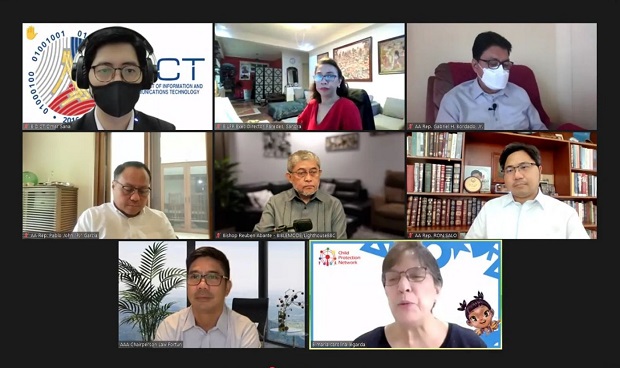In an online meeting on Thursday, Sept. 2, the House Committee on Revision of Laws approved a substitute bill to House Bill 7042 or the proposed “Virtual Marriage Act.”

Principally authored by Kabayan party-list representative Ron Salo and Zambales representative Cheryl Deloso-Montalla, the bill provides that no marriage would be valid unless essential requisites are met such as:
- Legal capacity of the contracting parties,
- Consent freely given in the presence of the solemnizing officer, and
- Presence may either be physical or virtual. If virtual, the contracting parties should be physically present together in the same location.
The bill defines virtual as “the use of video, audio, and data transmission devices that allow people from different physical locations to simultaneously communicate, see and hear each other.”
Salo, chairman of the Technical Working Group that crafted the substitute bill, said audio and video are both required for the identification of the contracting parties.
Other marriage-related bills approved by the committee were the substitute bills that grant members of the House of Representatives and governors the authority to solemnize marriage.
Bill author and Cebu representative Pablo John Garcia said while city and municipal mayors are, under the law granted the authority to solemnize marriages, provincial governors – who exercise similar functions as local chief executives — have been “unjustly” denied a similar authority.
The panel also approved a substitute bill that provides for the regime of conjugal partnership of gains as the governing regime in the absence of a marriage settlement or when the regime agreed upon is void.
Lastly, a substitute bill was also adopted by the committee, which would allow a foreign decree of dissolution of marriage to be registered with the Philippine Civil Registry even in the absence of a judicial recognition to that effect.
According to Department of Foreign Affairs charge d’ affaires Christian de Jesus, Philippine Embassies no longer perform authentication services in all their jurisdictions.




